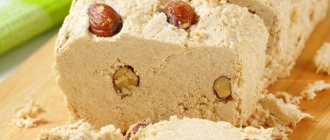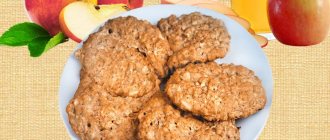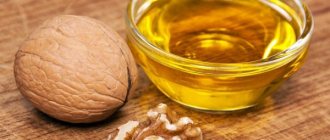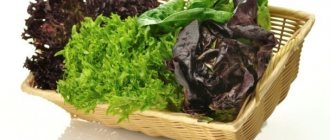Flax seeds are a natural product that has a positive effect on brain activity and saturates the body with such important elements as vitamins A and E, B and F, potassium and magnesium, manganese, various amino acids, etc. However, according to experts, can flax seeds be used by a nursing mother? , diverge. For example, researchers from Canada claim that flaxseed oil should not be consumed during lactation and in the last two trimesters of pregnancy.
But most doctors speak about the benefits of flax for nursing mothers and babies as additives to appetizers, salads or main courses. If the dosage is observed, this product will only benefit the baby and the nursing woman. However, in any case, before introducing this food into your diet, it is better to consult your pediatrician.
The benefits and harms of flaxseed oil
Flax seeds perform a number of important functions during breastfeeding. First of all, they effectively and quickly restore a woman’s body after childbirth and normalize hormonal levels. Flaxseed oil has a positive effect on feeding, lactation and breast milk production, and promotes the development and activity of the baby’s brain. This product saturates the body with essential vitamins and strengthens the immune system, quickly copes with colds and fungal infections.
Flaxseed oil improves the functioning of the intestines and digestion, thyroid gland and kidneys. Helps with diseases of the liver, heart and blood vessels. Improves the condition of skin and hair, rejuvenates. It helps with constipation, which often occurs in women in the first two to three months after childbirth. Read here what to do if a nursing mother has constipation.
However, consuming flaxseed oil can also cause negative consequences. The product should not be used for diseases such as endometritis, polycystic disease and uterine fibroid. It is contraindicated for intestinal inflammation, biliary tract diseases and pancreatitis, and high blood pressure. It is also important to follow the recommended amount and not overeat. An overdose of flaxseeds leads to stomach upset and diarrhea.
Is it possible for a child?
If there are no contraindications or allergies, then you can add flax seeds and its derivatives to your child’s food. Important! Use them in very small quantities. Useful properties have a beneficial effect on intestinal motility, improve immunity, and have a preventive effect on rickets.
From what age?
After the period of colic has passed, flax seeds and its derivatives can be introduced into complementary foods. From six months - 5 grams of seeds in vegetable porridge, from one year to three years - 0.5 teaspoon per day. From three years old, increase to one teaspoon.
How to add it to food?
The easiest way to use flaxseed oil in complementary feeding , but this must be done with care (it can increase bile secretions and cause colic in the gallbladder area). It is best to grind the seeds and add them to vegetable porridge instead of regular vegetable oil.
At the same time, it is important to limit its consumption by the mother, because with milk she also receives flax microelements. Then it’s worth making a distinction and choosing whether to get nutrients from milk or feed them.
How are they useful?
Flax is useful in a child’s diet for the prevention of rickets and arthritis. Helps cope with inflammatory processes by reducing the production of prostaglandids. Omega acids are important in building the baby’s skeleton and teething.
Also, the beneficial substances of flax have a preventive effect against inflammatory diseases of the respiratory tract (asthma, bronchitis). Some researchers recognize another important property - protection against intestinal cancer. And most importantly, it has an effect on the gastrointestinal tract and improves peristalsis.
Consumption of flaxseed oil and seeds for breastfeeding
- You can only consume natural oil or seeds. When feeding, you should not take dietary supplements, tablets, capsules and various preparations with flaxseed oil additives;
- Seeds or oils should not be eaten in the morning on an empty stomach or as a separate dish. The product is added to an already prepared dish, for example, in salads and snacks, in cereals and yoghurts. In addition, the seeds can be sprinkled on baked goods;
- Oil can be added to both hot and cold dishes;
- Oil should not be heated or used for frying. Due to high temperatures, flax loses its beneficial properties and can even release toxic substances. Therefore, oil is added not during the cooking process, but to an already prepared hot dish;
- To ensure flax is better absorbed, consume it with foods that contain vitamins E and B6. These are various types of nuts and beans, oatmeal and millet porridge, spinach, mackerel and tuna, chicken;
- It is better to start using flaxseed oil or seeds after 1-2 months of lactation;
- For the first time, add no more than a teaspoon of flaxseed oil to the dish and monitor the baby’s reaction after use. If no deterioration in the child’s condition is observed within two days, the nursing mother can occasionally eat the product;
- If your baby shows symptoms of a food allergy, remove the product from the diet and contact your pediatrician;
- The permissible amount of oil or seeds is two tablespoons, but nursing mothers are advised to start with a teaspoon and gradually increase the dosage to a tablespoon and subsequently not exceed these recommendations. A decoction of flaxseeds is taken half a glass once a day.
Can it be eaten?
Flax seeds and the oil obtained from this plant are considered very beneficial for people with reduced immunity. In terms of the content of biologically active substances, vitamins and microelements, the fruits of this herb are often compared to olives and olive oil.
A number of foreign scientists believe that the use of flax and its products by a young mother is contraindicated for women in the last trimester of pregnancy and in the first 6 months of breastfeeding. This opinion is justified by the increased impact of this product on the baby’s digestive system, which is fraught with possible gastrointestinal disorders.
At the same time, many doctors recommend that women consume the seeds of the plant only in the form of seasonings for various dishes. There is an opinion that the habit of drinking a spoonful of flaxseed oil in the morning on an empty stomach can lead to the development of gastritis or even a stomach ulcer.
Such an opinion is most often based on unverified information or distorted processing of laboratory observation data. Flax seeds and food products derived from them are very important for a nursing mother.
How to select, prepare and store
It is important to choose only a high-quality natural product and follow storage rules, as flax quickly deteriorates. Choose flaxseed oil only in dark glass containers. This product can be stored for more than three months. If you use seeds, grind the whole grains in a coffee grinder or meat grinder and add them to the finished, non-hot dish. You can buy already ground grains.
You can also make a decoction from the seeds. To do this, pour a liter of water, two tablespoons of seeds and heat in a water bath for two hours. Or pour the grains into a thermos, pour boiling water over them and leave for an hour. This drink strengthens the immune system, helps with colds, diseases of the stomach, liver and kidneys, and with constipation. It invigorates, energizes and tones the body, and has a positive effect on lactation.
Flaxseed oil is stored in a tightly closed container only in the refrigerator. Seeds are stored in glass and tightly closed packaging in a dark and well-ventilated area. Choose only fresh products, be sure to study the composition and check the expiration date!
Flax seeds
In ancient times, when there were no chemical medicines, people used natural herbs, seeds, and oils to combat various ailments. One of the healing agents that has survived to this day is flax, or rather its seeds and oil. The use of flax for medical purposes is justified by the fact that it contains:
- Lignans are natural analogues of the female hormone estrogen.
- Fiber - at least 8%.
- Highly productive protein - up to 30%.
- B vitamins, ascorbic acid, tocopherol, carotene and a lot of microelements.
Thanks to its unique composition, consumption of flax seeds and oil brings great benefits to the human body.
Alternative uses of flaxseed oil
Flaxseed oil is effectively used for cosmetic purposes, as it performs restorative and rejuvenating functions. The product is used as a massage oil, as a lotion or tonic for washing. This product gets rid of pimples and blackheads, skin wounds and restores the skin. In addition, flaxseed oil effectively strengthens hair, makes it voluminous and saturates it with a pleasant aroma.
We offer several light and effective masks for hair and skin using flax:
- Pour a tablespoon of seeds with half a glass of boiling water and simmer in a water bath for 15 minutes. Then strain the broth and apply to your face, rinse after half an hour with warm water. This product is suitable for dry and sensitive skin, helps with chapping and eliminates wrinkles;
- Add a piece of butter or a tablespoon of heavy cream to the broth, mix and apply to your face for half an hour, then rinse with warm water. This nourishing and moisturizing mask will refresh the skin, give youth, elasticity and a healthy radiant appearance;
- Apply flaxseed oil or flaxseed decoction to your hair and rub thoroughly into the scalp. Leave the product for 30-60 minutes and then rinse with shampoo. This product stimulates hair growth;
- At night, make a hair mask from oil and glycerin. The mixture is rubbed into the head, the hair is combed and a scarf is put on. In the morning, wash off the composition with shampoo and balm.
Many women after childbirth are faced with the problem of deterioration and severe hair loss. In this case, proper healthy nutrition and traditional methods using various decoctions, herbs and products help. You will find many recipes for masks and remedies for hair loss after childbirth and during breastfeeding at the link https://vskormi.ru/mama/pri-grudnom-vskarmlivanii-vipadayt-volosi-chto-delat/.
Subscribe to our VKontakte group
Useful qualities of flaxseed flour for a nursing mother
Flaxseeds are rich in vegetable protein, oil, and fiber. They have high nutritional and restorative properties.
When there is a deficiency of useful substances in the body, there is poor performance of organs, muscle weakness, waste products, toxins accumulate, excess weight, and the condition of the skin worsens.
Powdered flax seeds and flaxseed flour contain lignans (phytoestrogens), due to which:
- the processes of withering and aging slow down;
- cancer cells are destroyed and eliminated;
- the microflora of the digestive tract is normalized;
- the level of dense cholesterol and blood sugar decreases;
- hormonal levels are normalized;
- The immune system and the body’s resistance to various types of diseases are enhanced.
after consultation with a doctor and with his permission.
Thanks to their composition, dishes based on flaxseed flour serve as a good source of health for mother and baby. When mothers consume these dishes, they experience a qualitative improvement, milk is enriched with useful substances and lactation increases. Immunity increases, metabolic processes are activated, and the risks of postpartum stress and depression, inflammatory processes, and insomnia are reduced.
But it should be remembered that this product, being a powerful cleanser, can produce a laxative effect, upset the baby’s stomach, and create problems with stool. In this case, you should immediately stop eating dishes with the addition of flaxseed flour.
How dangerous it can be
Flaxseed oil and seeds should not be taken if a nursing woman has the following diseases:
- endometriosis and uterine fibroids;
- pancreatitis, as well as pathologies of the bile ducts and gallbladder;
- urolithiasis and other kidney diseases;
- polycystic ovary syndrome;
- hypertension of various etiologies;
- inflammatory and erosive processes in the gastrointestinal tract, in particular its mucous membranes.
During pregnancy and childbirth, flaxseed oil and seeds should not be consumed. According to foreign scientists, flaxseed can cause digestive problems in the unborn baby.
If you do not follow the doctor's recommendations and use this product uncontrollably during breastfeeding, an exacerbation of diseases and other health problems may occur. As for the health of the baby, allergic reactions or temporary dysfunction of the digestive tract may occur.
If your child exhibits symptoms of food allergies, restlessness, or sleep disturbances, immediately eliminate this supplement from their diet and contact your pediatrician immediately.










